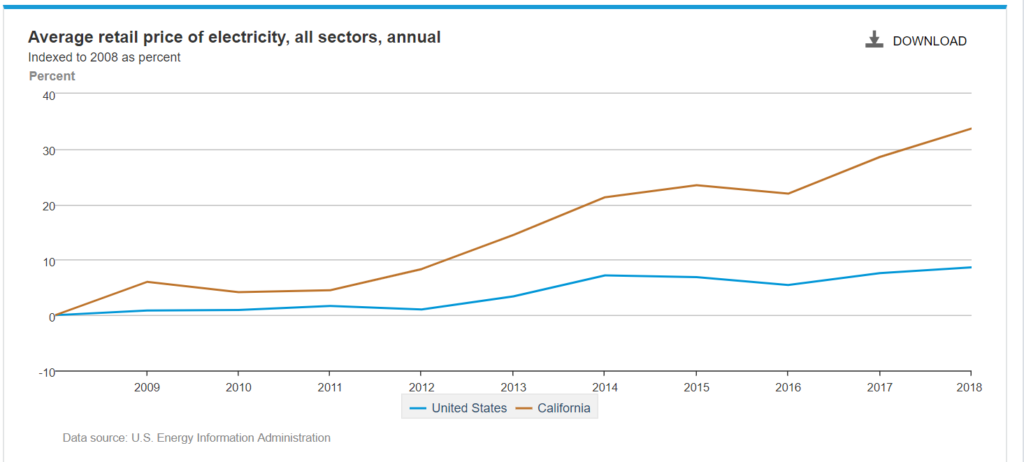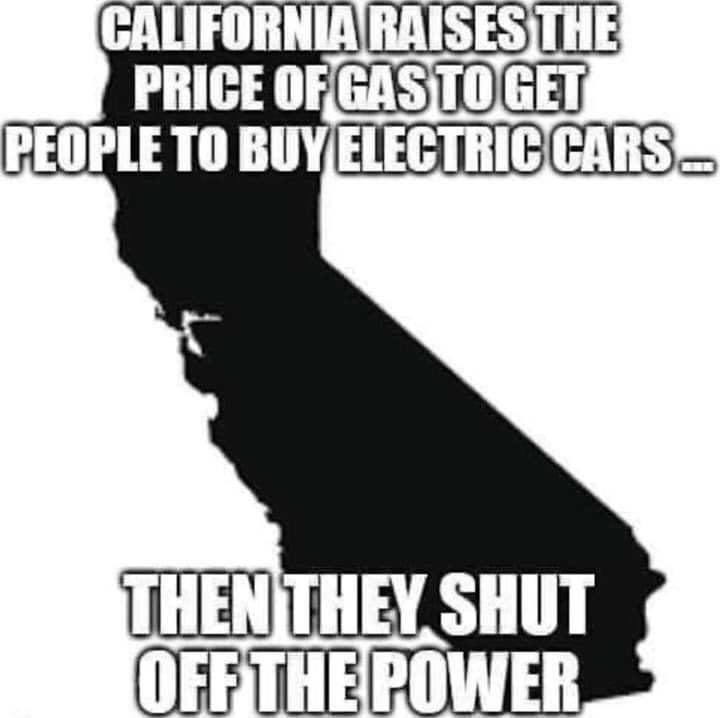Dear Governor Walz, Please Don’t Turn Minnesota Into California
When it comes to energy policy, California should be an example of what not to do. Unfortunately, Minnesota Governor, Tim Walz, seems intent on following many of the same mistakes that have been made in the Golden State.
Among these mistakes is his attempt to mandate the use of more wind and solar on the electric grid, attempting to raise the gas tax by 20 cents per gallon in an effort to get people to drive less or purchase smaller cars, and trying to use the bureaucratic rule-making process to force Minnesota to comply with California Car Zero (ZEV) Emission Vehicle and Low Emission Vehicle (LEV) Mandates.
Before forcing Minnesota to leap headlong into making the same energy decisions as California, it would be good to look and see what the impacts have been. You probably won’t be surprised to learn that the results haven’t been good.
More Wind and Solar Result in Rising Prices, Reduced Reliability
Californians have seen their electricity prices increase 24.6 percent faster than the national average since 2008, when then-Governor Arnold Schwarzenegger signed an executive order mandating that a third of California’s electricity come from renewables by 2030.

Minnesotans have seen their electricity prices increase 26 percent faster than the national average since 2007, when then Governor Tim Pawlenty signed Minnesota’s renewable energy mandate.
Now, California is making headlines because major electric companies are shutting off the power to prevent fires from starting.

Had California invested in upgrading their transmission infrastructure and trimming trees, instead, they might have avoided the widespread blackouts.
California Politicians Raise Gas Taxes, Proceed to Be Mad Gas Prices Are Too High
Californian’s pay more for their gas than residents in any other state. A recent report out of the California Energy Commission found gas taxes and other energy policies account for much this additional cost. According to an article in Reason:
“The commission’s investigation found that per gallon gas prices were roughly $.75 higher in California last year than in the rest of the country. Of this difference, some $.40 was attributable to the state’s higher taxes (which includes a $.47 per-gallon excise tax plus an addition 2.25 percent sales tax), cap-and-trade regulations (which caps statewide emissions and then auctions off emissions credits to companies), and its low-carbon fuel standard.”
In Minnesota, Governor Walz proposed a 20 cent per gallon hike in the cost of gasoline, in part to reduce the amount of gas consumed by Minnesota motorists. As American Experiment noted in our gas tax campaign, if the gas tax hike had only been about infrastructure, the governor wouldn’t have proposed shifting money collected from the auto parts tax out of the transportation budget, and into the general fund.
California Car Mandates
Electric vehicle drivers in California are learning the hard way that electric cars don’t work very well when the power goes out. You’ll remember the piece that I wrote detailing how these new regulations aren’t about about increasing consumer choice, and how they will reduce vehicle safety while resulting in zero measurable reductions in future global temperatures.
Unfortunately, Governor Walz still wants to use the bureaucratic rule-making process to impose California’s regulations on Minnesotans.
Thankfully, the Trump administration may be nipping this entire debate in the bud by rescinding California’s ability to set it’s own fuel mileage and greenhouse gas standards for cars. This action would still allow California to regulate pollutants like ozone, nitrous oxides, and other traditional tailpipe emissions, but it would prevent them from regulating greenhouse gases.
Without this action, bureaucrats at the California Air Resources Board can craft regulations that are imposed by the bureaucratic rule-making process in Minnesota to effectively allow California to dictate energy policy for the entire nation.
Conclusion
Governor Walz would do well to take a critical look at the energy policies employed in California and the negative consequences stemming from them. Minnesotans should learn from California’s mistakes, not repeat them.